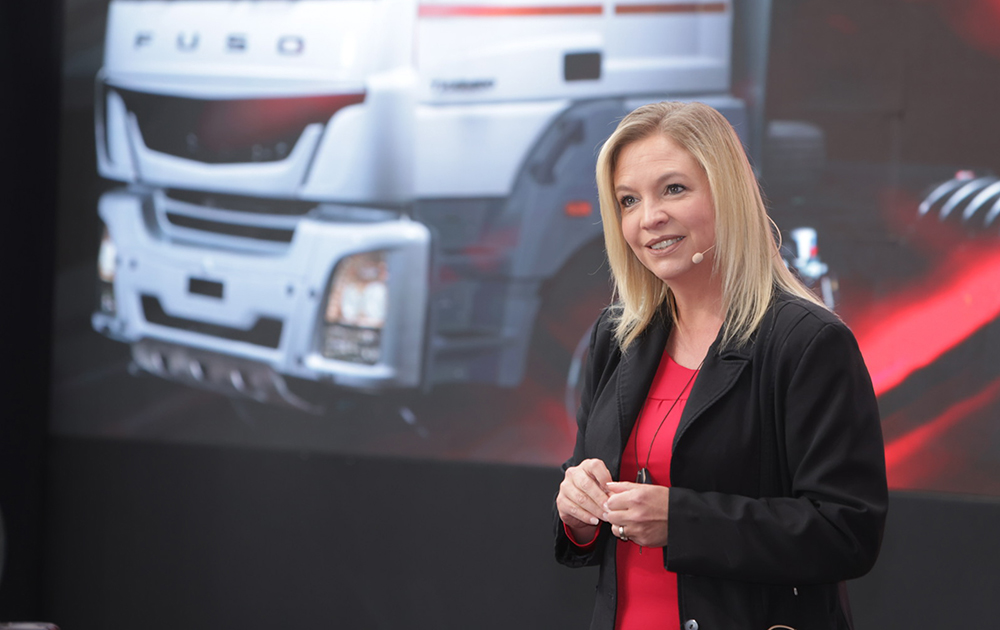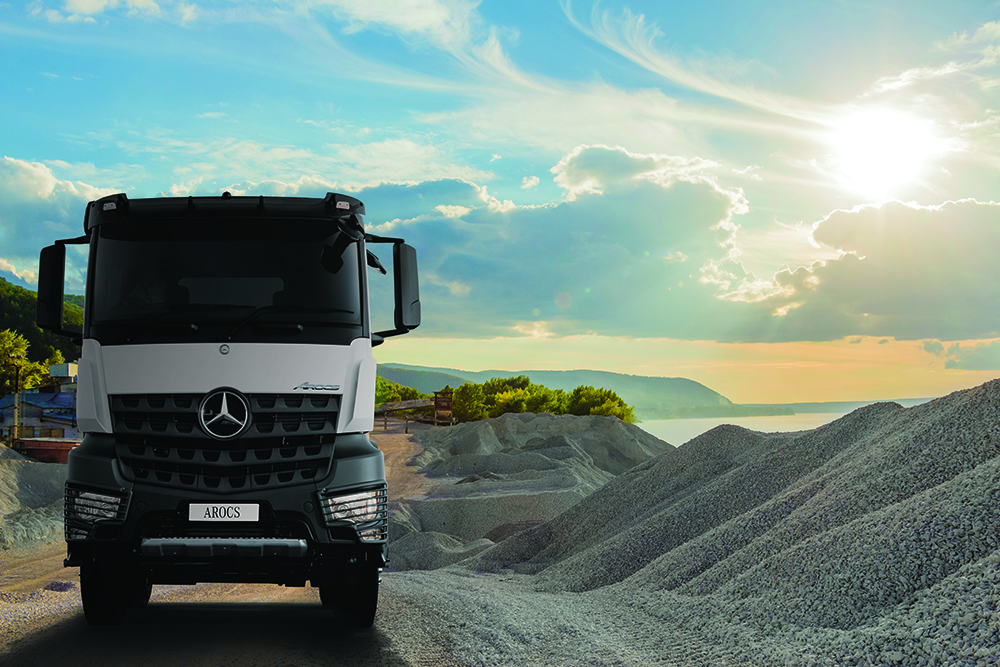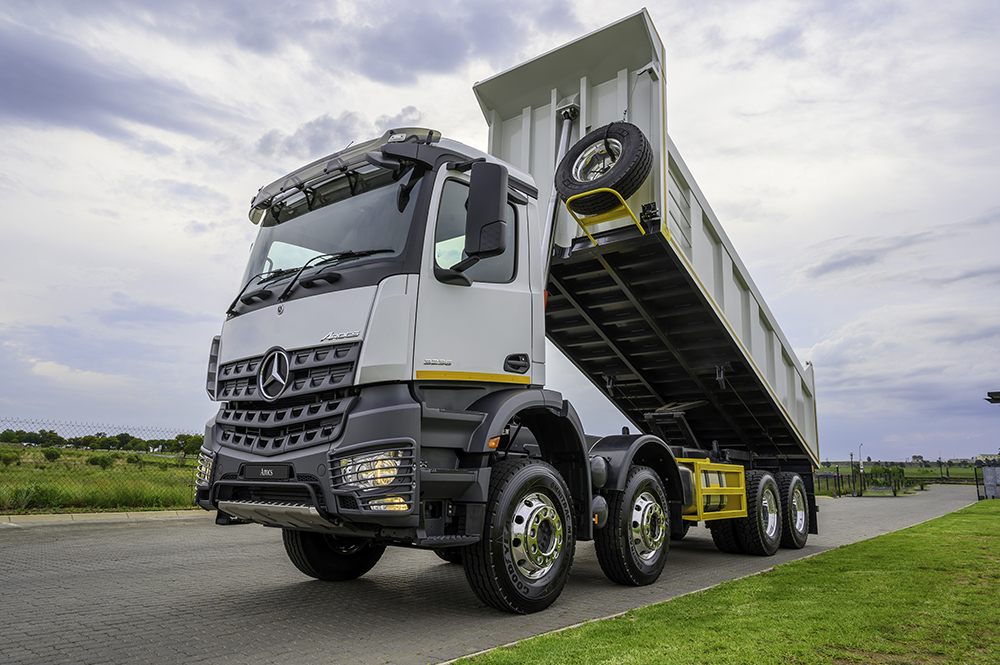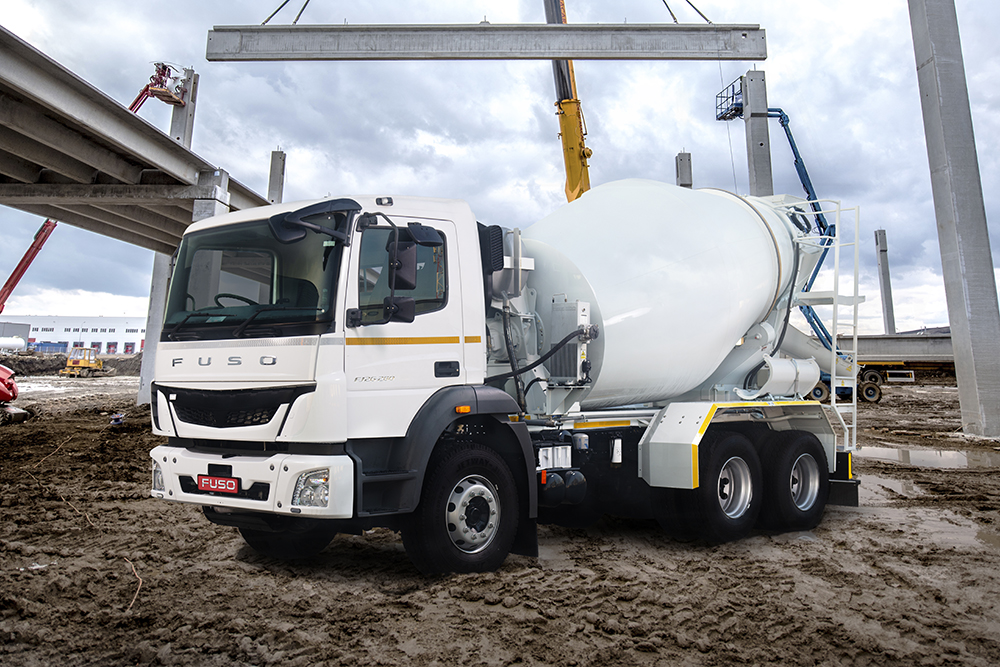
The Southern African construction industry has been in dire straits for the past five years, if not longer. However, based on the growth in sales of construction vehicles, the market is seemingly bouncing back. This is the view of Gerber, who has seen an increased demand for construction-type trucks in the past 12 months in South Africa, and the Southern African region at large.
Construction, says Gerber, has been part of Mercedes-Benz Trucks’ ‘DNA’ for many years, and remains a big focus for the brand. In fact, some 10 years ago, the construction industry constituted 50% of Mercedes-Benz Truck sales in Southern Africa. During those years, the company actually had a stronger focus on its construction range than on long-haul vehicles, with the previous Axor range enjoying a good run in the market.

“While the protracted slump in the construction environment hit us hard in the past few years, we have always believed that the market would rebound at some point,” says Gerber. “We are glad that construction is starting to show signs of recovery, with almost every original equipment manufacturer (OEM) struggling to meet demand.”
Despite a long market slowdown, Daimler Truck Southern Africa has, in recent years, boosted its offering with a range of models and solutions that speak directly to the needs of construction and quarrying customers, further reiterating its commitment to the sector.
The arrival of the Arocs in early 2019 marked a new era in the company’s construction portfolio. Unfortunately, the range arrived at the height of the construction downturn and therefore struggled to gain the traction that the company had envisaged. However, sales of Arocs trucks have been growing by more than 30% year on year, over the past three years.
The complementary FUSO range, which was brought in to meet the growing demand for value offerings in the construction and quarrying space, is also enjoying good sales growth. In the past six months, says Gerber, demand for the 6m³ concrete mixers, in particular, has increased. However, supply chain issues and bodybuilder backlogs remain a challenge for every OEM.
“It is encouraging to see our customers starting to enquire more about the Arocs and the FUSO FJ ranges. The challenge, however, is that when construction and quarrying customers want their trucks, they want them ‘now’, irrespective of the supply chain disruptions. On the one hand, we are trying to manage customer expectations, and on the other, to be proactive. For example, some of the dealers, in collaboration with bodybuilders, are proactively buying their construction trucks and bodying them up, so that when a customer walks in and wants a truck now, they have a standard offering available immediately,” explains Gerber.
One of the new trends in the construction/quarrying market, says Gerber, is that end users are now looking beyond the truck – they are looking for efficiency, productivity, bodybuilder friendliness and value for money. When it is procurement time, she adds, they look for products that tick all the boxes for all involved parties in the decision-making process, all the way from the CEO to the operational manager.

The Mercedes-Benz Arocs range for construction is optimised for reliability, robustness and bodybuilder friendliness. The company initially launched two construction models in 2019 – the Arocs 3336K/36 Tipper Chassis and the Arocs 3236B/51 8x4 Mixer Chassis. These were later augmented by a further three models: an 8x4 tipper (the Arocs 4152K/51) and two all-wheel drive off-road vehicles (the Arocs 1836AE/45 and the Arocs 3352AE/48).
Drive programmes are available which have been specifically developed for the vehicles’ varied ranges of applications. For construction vehicles, the “Off-Road Drive” programme is standard. Off-road drive mode offers Standard, Economy, Off-road and Manual driving set-ups. It is optimised for the special requirements of construction-site traffic and supports economic driving styles just as much as improved handling when pulling away or manoeuvring on building sites or when driving slowly along challenging terrain in quarries.
On gravel roads or off-road, the above-mentioned drive modes offer ideal performance in terms of dynamism when pulling away under high loads, gearshift points and shift dynamics.
The Arocs 3236B/51, an 8x4 concrete mixer with 35-tonne gross vehicle weight (GVW), features a weight-optimised hypoid rear axle, light-weight aluminium fuel tank, disc brakes and aluminium rims to reduce kerb weight and increase payload. This enables the 8x4 mixer chassis to supply 8m³ of ready-mixed concrete on every trip.
The Arocs 3336K/36 is a versatile tipper chassis with a short rear overhang featuring robust planetary axles, a double disc clutch, robust drum brakes, optimised for off-road use and a 16-speed Powershift 3 automated transmission with the “Off-Road Drive” programme as standard.

The application-specific mounting elements provide for a bodybuilder-friendly and fast-mounting process. All mixer chassis are standard with the mixer mounting brackets, and all tipper chassis come standard with the tipper mounting brackets, together with the modular bolted frame and the 50mm chassis hole pattern. With the new-generation Parameterisable Special Module (PSM), the turnaround time at a bodybuilder is significantly reduced.
The Arocs benefit from a number of innovations such as electronic parking brake, multifunctional steering wheel and keyless start, amongst others. The electronic parking brake activates automatically when switching off the engine, but can also be switched on and off manually, using the lever in the cockpit. The integrated HOLD function activates when the vehicle is at a standstill simply by pressing the brake pedal more firmly, for example, at a red traffic light or on an uphill gradient.
While the Arocs is a top-of-the-range offering for the high-end construction market, the FUSO plays in the value end of the market, speaking directly to the emerging contractor market and small-scale quarries.
In response to the growing demand for 6m³ truck mixers, Daimler Truck Southern Africa introduced the FUSO FJ26-280C HYP in April 2021. This model is specifically fitted with hypoid rear axles (single reduction axles), contributing extensively to low fuel consumption and reducing the tare weight of the vehicle. This is to ensure that the vehicle can accommodate a 6m³ concrete mixer and still comply with the permissible axle loads.
Traditionally, says Gerber, most construction and quarry truck owners have never taken a total cost of ownership (TCO) approach to their truck purchases. While many still largely consider the capital cost of the product, Gerber says several industry players are starting to develop a much better understanding of TCO, showing interest in not only purchase costs but also in the costs related to keeping the equipment running.

There are several pillars to TCO. For Gerber, it’s all about the reliability and efficiency of the truck, as well as the aftersales care that comes with it. Daimler Trucks Southern Africa makes sure that when a customer walks in, they walk out with a solution that meets their needs, not just a truck. For example, the company offers a service contract as a maintenance option. Together with its dealers, the OEM makes sure that the truck is kept in good condition throughout its lifespan. Customers also have access to the OEM’s in-house finance solution, among other offerings such as driver training.
“For us, it boils down to value for money, efficiency and productivity. It’s also about building a modular solution that meets the customer’s needs. Some customers, for example, might not want a service contract, but finance would be important to them. One doesn’t necessarily have to take the full basket of solutions to put together a TCO solution. We can come up with a solution that speaks directly to the customer and their contracts,” she says.
Looking ahead, Gerber says moving towards cleaner fuels is imperative for the construction/quarrying industry and the automotive industry at large. Going the Euro 5 or Euro 6 route exposes the industry to a wide product range and an array of other operational benefits, such as better fuel efficiency and reduced environmental impact.
“If customers are willing to move to Euro 5 and Euro 6, we are able to bring in a broader product offering because these have become a priority for many of our source plants across the world. I believe that the next four years are going to be interesting for the Southern African market. Neither we nor our customers are waiting for legislation. The industry needs to evolve, and fast,” concludes Gerber.








